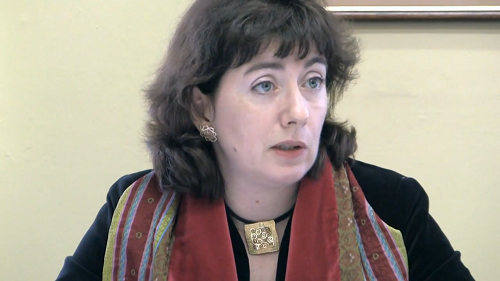- A
- A
- A
- ABC
- ABC
- ABC
- А
- А
- А
- А
- А
- HSE Campus in St. Petersburg
- Saint-Petersburg School of Social Sciences
- Department of Political Science and International Affairs
- News
- Invited Talk by Professor Laure Delcour, University Sorbonne Nouvelle, at a Research Seminar, Co-organised by the MA Programme 'Comparative Politics of Eurasia'
-
Departament
- About the Department
- Faculty and Staff
-
Annual Conference “The October Readings”
-
More About the Conference
-
Upcoming Conference
-
Archive
-
-
Academic Seminar
-
Upcoming seminars
-
Previous Seminars
-
198068 Saint Petersburg
Griboyedov channel embankment, 123, Room 324
t. +7 (812) 644-59-11, plus 61415
The Department was created on the basis of the Department of Politics, which was established in 2005. The main purpose of the department is to provide today’s students with professional training in the fields of political analysis and sociopolitical engineering, as well as in creating a special creative atmosphere that allows for the formation and development of a society of political experts who are capable of not only carrying out professional research, but also proposing and implementing solutions to relevant Russian and international problems.
 Federalism and Decentralization in Africa. Globalization and Fragmentation in Territorial Arrangements
Federalism and Decentralization in Africa. Globalization and Fragmentation in Territorial Arrangements
Leonid Issaev, Andrey Zakharov.
Springer, 2024.
Клещенко Л. Л.
Вестник Волгоградского государственного университета. Серия 4: История. Регионоведение. Международные отношения. 2024. Vol. 29. No. 1. P. 77-86.
Korotayev A., Issaev L., Anna I. et al.
In bk.: Terrorism and Political Contention. New Perspectives on North Africa and the Sahel Region. Springer, 2024. P. 169-194.
OxonCourts Judicial Studies Graduate Colloquium. OxonCourts Judicial Studies Graduate Colloquium. University of Oxford, 2019

Invited Talk by Professor Laure Delcour, University Sorbonne Nouvelle, at a Research Seminar, Co-organised by the MA Programme 'Comparative Politics of Eurasia'

Professor Delcour presented results of her research on the topic 'The EU and its “eastern neighbourhood”: multiple external influences, policy transfer and domestic change'
On December 11, 2020, the joint Research Seminar of the Department of Political Science and International Relations, the Centre for Comparative Governance Studies and the MA Programme 'Comparative Politics of Eurasia' hosted Professor Laure Delcour (Institute for European Studies,University Sorbonne Nouvelle, Paris, France). Professor Delcour presented results of her research on the topic 'The EU and its 'eastern neighbourhood': multiple external influences, policy transfer and domestic change'.
This research has departed from the earlier literature on the European Union influence in its Eastern neighbourhood, which had tended to focus on EU-level policies and prioritize EU-related variables. Professor Delcour has sought to overcome this EU-centric approach by connecting EU policy transfer to the domestic and regional environment in which it unfolds. She looked at the ways in which the EU attempted to influence domestic change in the post-Soviet countries participating in the European Neighbourhood Policy/Eastern Partnership and domestic receptivity to EU policies and templates. She sought to disentangle the various dynamics behind domestic change (or lack thereof) in Eastern Partnership countries, including EU policy mechanisms, domestic elites’ preferences and strategies, regional interdependences and Russia’s policies. Based upon extensive empirical investigation on EU policies in four countries (Armenia, Georgia, Moldova and Ukraine) Professor Delcour provided systematic and nuanced explanation of complex forces at work in the policy transfer process.
-
https://elearning.hse.ru/en/mooc/
Massive Open Online Courses
-
https://www.hse.ru/en/visual/
HSE Site for the Visually Impaired
-
http://5top100.com/
Russian Academic Excellence Project 5-100
- © HSE University 1993–2025 Contacts Copyright Privacy Policy Site Map
- Edit

